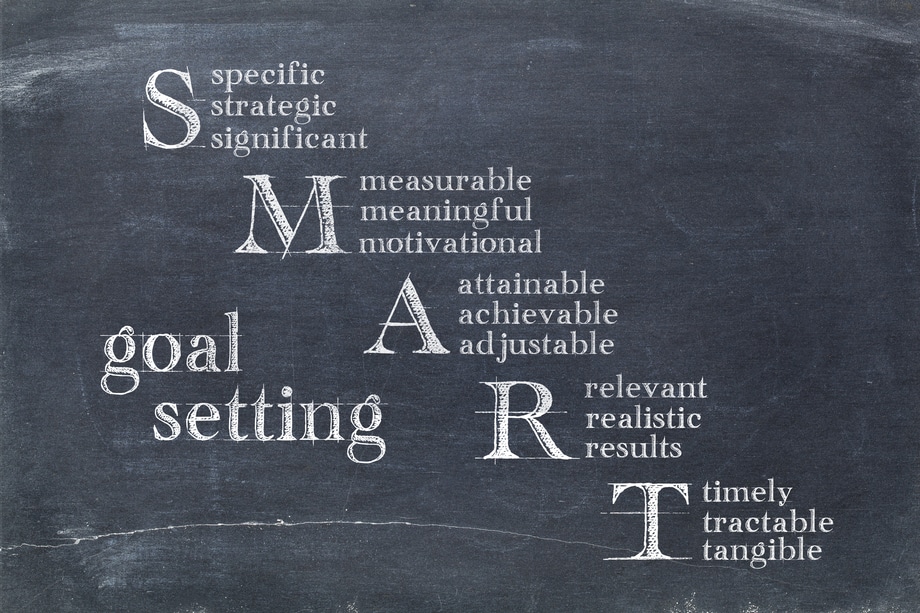It’s a new year, and for many people, that means setting new goals, including career goals. Setting career goals is important because achieving those goals is directly correlated to job satisfaction, and only about half of American workers are satisfied with their job. So much of our time is spent at work, so being happy and having something to strive for can keep you motivated and make all the difference. We are going to review some tips for how to set career goals, so you can become more driven towards achieving those goals and take pride in your future career accomplishments.
What are Career Goals?
To put it simply, career goals are the milestones you want to reach as you advance in your chosen profession. Career goals are targets, such as: tasks and skills, positions, situations and experiences, related to your professional life, that you have a desire to achieve. They can be short-term or long-term, but usually include a combination of both.
When you go to set your career goals, when thinking about the short term, think about things like getting a promotion or certification, even landing an account or field position you would like, etc. For long-term goals, think more about the bigger picture. Where do you want to go in your career? Maybe you want to start your own company or become a member of the executive team. Short-term goals are usually the stepping stones into accomplishing your long-term vision and career goals.
What are SMART Goals?
To set career goals that work for you, you should use the SMART method. SMART is an acronym that you can use to guide your goal setting. SMART stands for Specific, Measurable, Attainable, Relevant, and Time-bound. Let’s break that down a little further.
- Specific: Set goals that are well defined, specific, and clear.
- Measurable: Define what criteria you will use to measure your progress towards the goal. Make sure your goal is something that can provide you with evidence that you are advancing towards achievement.
- Attainable: Have goals that are not impossible to achieve. Be realistic. Make sure you can reasonably accomplish your goal within a specific time frame.
- Relevant: Your goals should be real and relevant to your life’s purpose and your values and long-term objectives.
- Time-based: Have a clearly defined timeline, including a starting date and a target date. The purpose is to create task prioritization and motivation.
Using the SMART method as you set career goals will help you to set goals that are well defined, achievable, and have a way for you to keep track of them to ensure you are on pace to accomplish them. SMART goals incorporate criteria to help focus your efforts and increase the chances of achieving your goals.
What are Some Other Tips for Setting Career Goals?
Along with the SMART method, there are some other things you should do when you set career goals. Check out some of these tips below.
- Set each goal as a possible statement. Express your goals positively and avoid using negative tone.
- Set your priorities. This will help you to avoid feeling overwhelmed by having too many goals and not knowing where to start. By prioritizing, you are creating a plan.
- Be precise. Include dates, times, and amounts in your goals, so you can measure achievement. Change your goals as needed.
- Set realistic goals. As noted above, it’s important to set goals that are attainable. Stick with goals that you know are realistic for you and avoid external influence. Only you know your desires and ambitions.
- Write your goals down. Studies have shown that those who write down their career goals have a greater chance of achieving them, when compared to those who do not write them down. By writing down your goals, you not only can remember them, you can hold yourself accountable for accomplishing them.
- Set performance goals, not outcome goals. Stick with setting goals that you can control. Some things are out of your hands, so avoid setting goals around those.
- Work backwards from your end goal. When setting professional goals, begin with your end goal in mind and then work backwards. Once you know where you want your career to go, list out the steps that will ultimately lead you to your final destination.
Why Should you Set Career Goals?
According to research, most employees say that setting career goals is important to their performance on the job. Setting goals give you a long-term vision with short-term motivation. Goals help to bring all of your focus and determination in and help you to organize your time and resources, so you can make the most of each situation in your career and overall life.
Having career goals gives you something to work for and to hold yourself accountable for, making them very important.
At Mackinnon & Partners, people are our success, and we want you to achieve your success. We aim to provide first class candidates to a variety of emerging and established markets with a wealth of knowledge in the renewables, oil and gas, and construction industries both on and offshore.
Contact us to learn more about how you can advance your career or find world-class talent to add to your organization. We aim to give clients a seamless and hassle-free recruitment process with the right candidate presented the first time.
- Construction Jobs Recruitment Agency - April 15, 2024
- What is Recruitment Process Outsourcing? - April 8, 2024
- The Benefits of Outsourcing Recruitment to a Specialist Agency - March 27, 2024




































































































